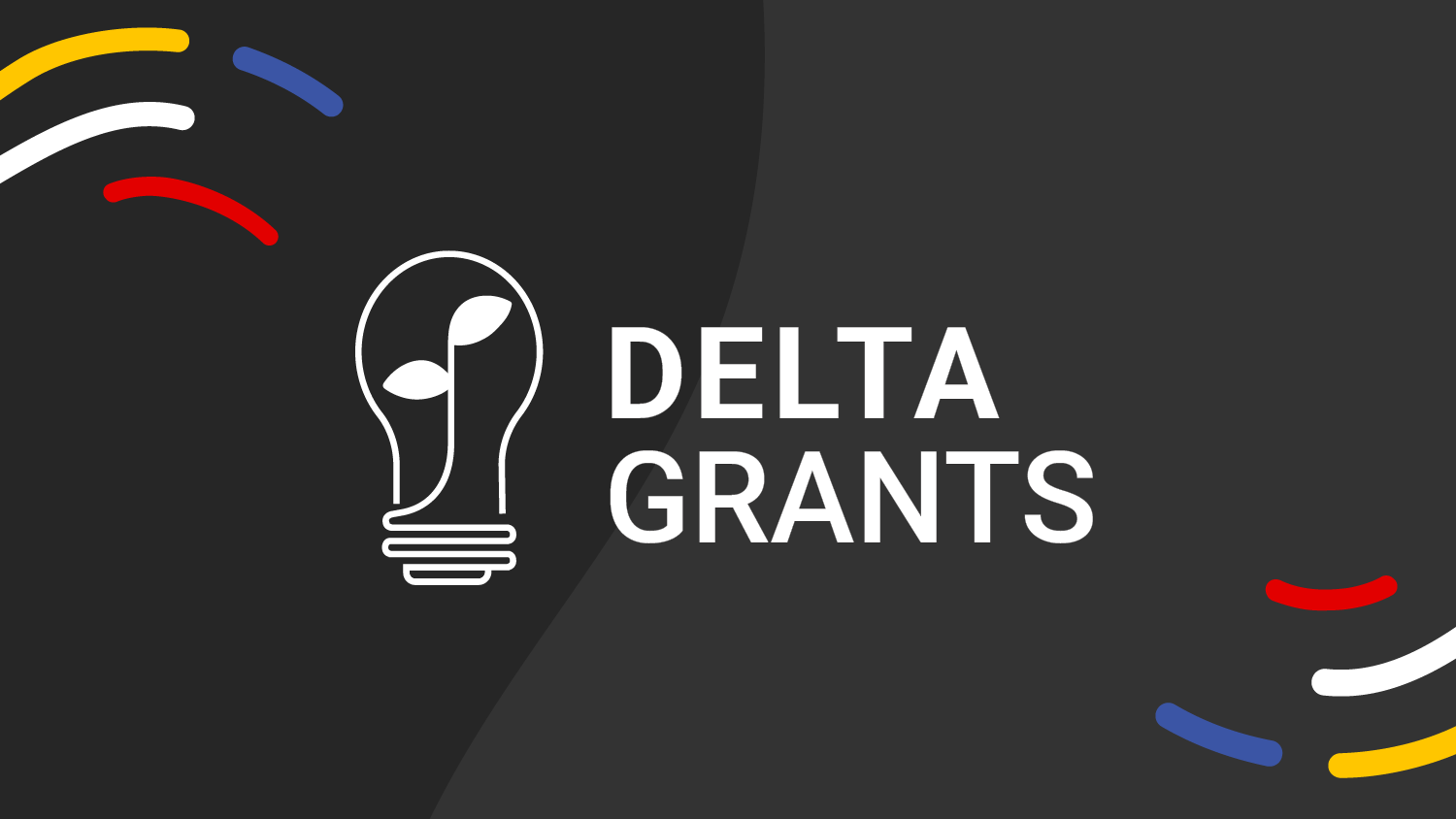Meet the Newest Members of the Course Quality Program at NC State

As NC State faculty and students prepare for a full return to campus this fall, online and hybrid courses will continue to play a big role. We’ve learned a lot in the past year about teaching and learning online, but there’s always room to raise the bar. Faculty in the Course Quality Program are dedicating their time and efforts to making improvements to their online courses and commitment to excellent online education at NC State.
The Course Quality Program has several pathways to success, including the Quality Matters (QM) Essential Standards Program (QMESP) and the Online Course Improvement Program (OCIP). QMESP is a pathway in which faculty apply the essential QM standards to one of their current online or blended courses. OCIP is an opportunity for faculty who teach online and are seeking to build upon their existing knowledge and skills in pursuit of improving one of their online courses.
Over the next semester, these groups will work to complete their programs and enhance online student success at NC State. We caught up with them to learn more about their journeys and what they’re excited for this fall.
Quality Matters Essential Standards Program
Michelle Bartlett, Assistant Teaching Professor, College of Education.
Bartlett is an assistant teaching professor and serves as the Raleigh Cohort lead for the Ed.D. in Community College Leadership. The program is hybrid and has both face-to-face and online course components. Bartlett has years of experience designing and facilitating training in areas of improvement in higher education, post-secondary education, business and government programs.
Bartlett joined the program to take a great course and make it even better, ensuring quality in every aspect of the course from the first impression to the learning assignments and assessments.
“I am looking forward to having the time and support to get one of our core courses ready for a Quality Matters review. Having the course certified lets faculty and students know we have designed a strong educational experience for our students that aligns with the learning goals,” says Bartlett.
Jason Bocarro, Professor, Department of Parks, Recreation and Tourism Management, College of Natural Resources.
Bocarro’s research has focused on how sports, recreation, and natural outdoor environments contribute to making children and adolescents healthier. He believes strongly in the concept of bridge-building, both as a metaphor for developing relationships with students and other partners, and as a pedagogical strategy for course content delivery.
April Fogleman. Associate Professor and Extension Specialist, Department of Food, Bioprocessing and Nutrition Sciences. College of Agriculture and Life Sciences.
Fogleman, Ph.D., IBCLC, RD teaches courses related to nutrition, specifically Public Health Nutrition, Introduction to Human Nutrition, Public Health Perspectives in Infant Nutrition, Clinical Concepts in Infant Nutrition, Maternal and Infant Nutrition, and a section of the CALS honors course. She teaches approximately 500 students each year, including undergraduate and graduate students, and also teaches for the community through extension.
Claire Gordy, Teaching Assistant Professor, Department of Biological Sciences, College of Sciences.
Gordy is a teaching associate professor of biological sciences in the College of Sciences. She is a previous DELTA Grant recipient and advocate for Universal Design for Learning. In 2020, she and her colleague Melissa Ramirez were awarded $75,000 by the National Science Foundation to continue the development of STEM BUILD, a project to enhance Universal Design for Learning and improve learning outcomes in STEM courses for all students.
Sarah Khan, Teaching Associate Professor of Information Technology and Business Analytics, Department of Business Management, Poole College of Management.
Khan is an associate teaching professor of information technology and business analytics at Poole College of Management. She has extensive teaching and course design experience for technology courses for large class sizes, multi-section courses and virtual learning in technology courses. Her research interests include digital piracy, the economics of IT and big data. She is also involved with consulting work in big data analytics solutions.
Khan hopes to improve the quality of her hybrid-format IT class from the students’ perspective.
“As soon as I learnt about this program, it intrigued me. I am looking forward to shaping my class using the QM resources,” Khan says.
Online Course Improvement Program
Erica Edwards, Assistant Teaching Professor, School of Public and International Affairs, College of Humanities and Social Sciences.
“My name is Erica Edwards and this is my first year teaching at NC State. Originally from Houston, Texas, I have lived in five different states and five different countries. With an expertise in comparative politics, I have a passion for introducing students to what’s happening beyond their own country,” she says.
As a new faculty member at NC State who will consistently be teaching in the online Leadership in the Public Sector B.A. program, Edwards sees the Online Course Improvement Program as an opportunity to meet new people and advance her skills in online teaching.
“Though I teach online regularly, the technology and methods for teaching remotely are in constant flux. I am always eager to participate in opportunities that expose me to the latest developments.”
Matthew Hettche, Lecturer, Department of Philosophy and Religious Studies, College of Humanities and Social Sciences.
Hettche’s areas of expertise include business ethics, the history of early modern philosophy, and applied ethics.
Jonathan Phillips, Senior Lecturer, Department of Agricultural and Resource Economics (ARE), College of Agriculture and Life Sciences.
Since joining NC State in 1999, Phillips has taught in both the undergraduate and Agricultural Institute. He helped build ARE’s online program with initial online course offerings in 2005. Phillips teaches a mix of undergraduate and Agricultural Institute courses. His main areas of instruction are introductory economics, human resources and finance. Over the years, Phillips has served as a faculty adviser to Delta Tau Alpha honor society, Agricultural Institute club, Agrilife Council, FarmHouse fraternity and founded the bass fishing team at NC State.
Phillips’ colleagues expressed to him that the program was a wonderful experience well worth the time commitment, and encouraged him to participate. He looks forward to learning a new approach to online course development.
Katherine Saul, Associate Professor, Mechanical and Aerospace Engineering, College of Engineering.
Saul is an associate professor of mechanical and aerospace engineering and an academic affairs faculty fellow at the UNC System Office. In her research, she is interested in improving the lives of people with disabilities through musculoskeletal biomechanics and computational modeling. She is also dedicated to increasing student success and equitable outcomes through the incorporation of adaptive learning technology and empathy for students.
She recently received a Critical Path DELTA Grant to redesign her course to include adaptive courseware and improve online resources for engineering dynamics. The course serves, in part, distance students at UNC Asheville and in Havelock, North Carolina.
“I look forward to ensuring my course materials form a strong support for students that is easily navigable and accessible to all.”
Jessica Yinka Thomas, Director of Business Sustainability Collaborative and Assistant Professor of Practice, Department of Management Innovation and Entrepreneurship, Poole College of Management.
In addition to teaching in the Department of Management Innovation and Entrepreneurship, Yinka Thomas serves as director of the Poole College Business Sustainability Collaborative and president of B Academics. Her work focuses on studying innovative sustainable business models including B Corporations. She joined OCIP to work on MBA 582: Sustainability in Business.
“I am committed to the highest standards of online teaching for my current course, as I expand my online teaching load and so that I can serve as a resource to colleagues. I am passionate about setting a high standard for my course because this is a still-emerging model of teaching where we all have a lot to learn from research, practice and each other.”
Yinka Thomas is particularly interested in strengthening and creating more aligned and engaging assessments, which she believes will greatly benefit both her ability to successfully deliver the course and the student learning experience.
About the Course Quality Program
NC State has 39 official QM-certified courses and more than 150 faculty and staff who have participated in QM training.
The Course Quality Program is facilitated by a team of stellar DELTA staff members — Jill Anderson, Arlene Mendoza-Moran, Rebecca Sanchez, Bethany Smith and Bethanne Tobey.
As DELTA continues to leverage innovative pedagogy and technology in the pursuit of student success, we’ll also continue to lead the way and deliver on our promise of promoting high-quality education to all learners through the Course Quality Program.


